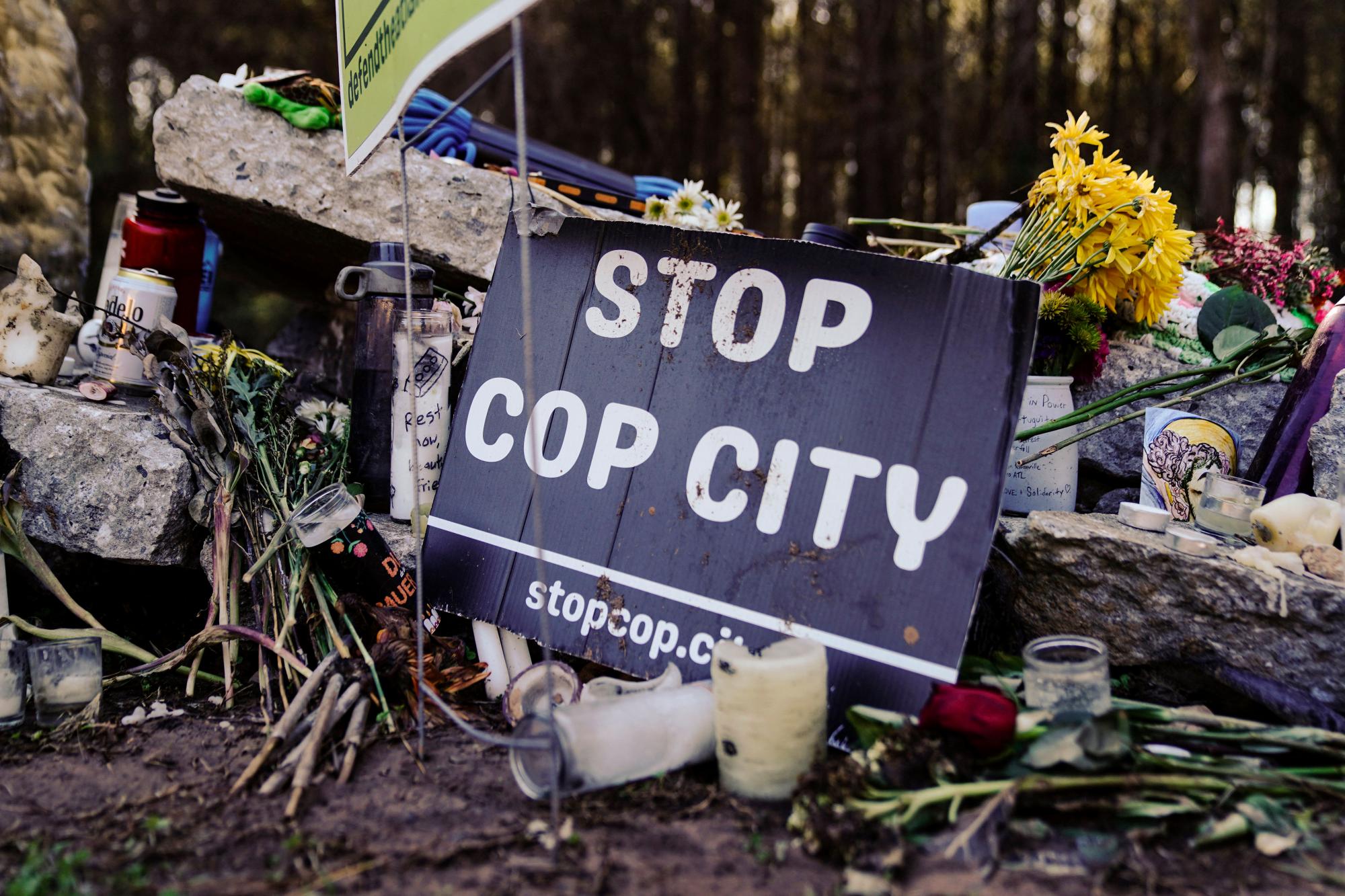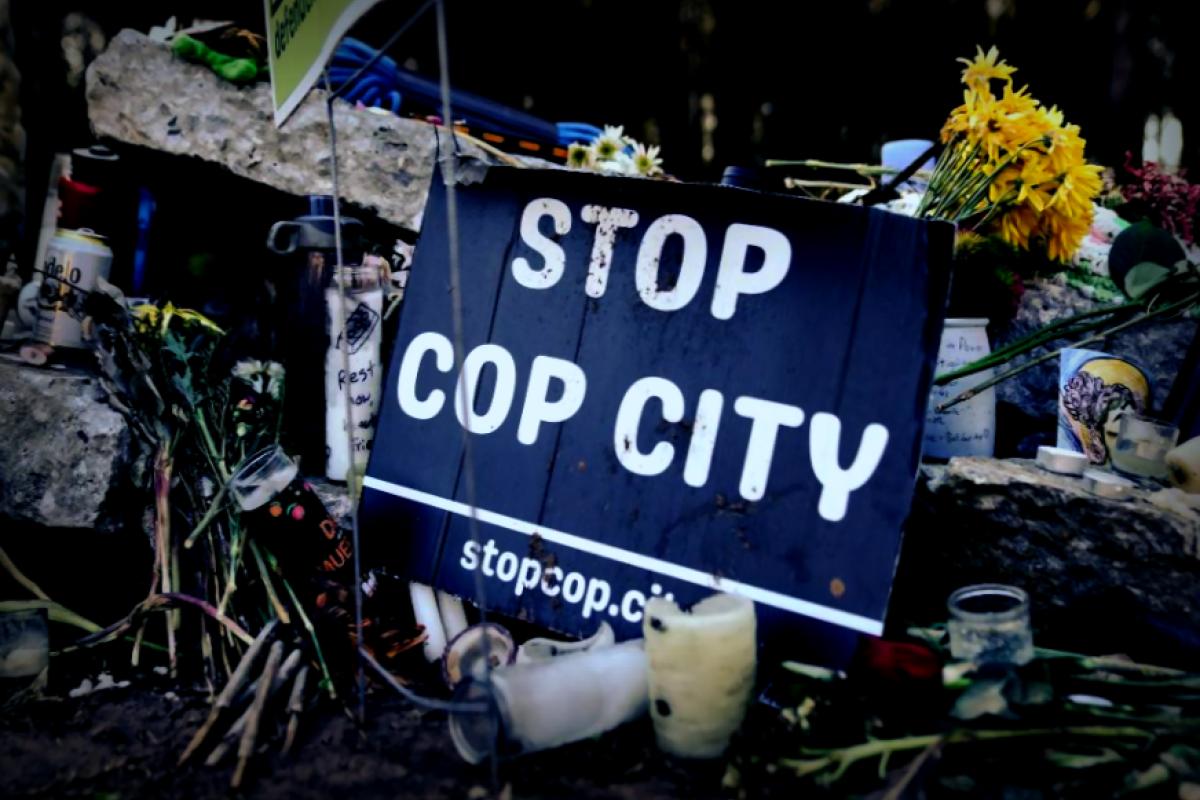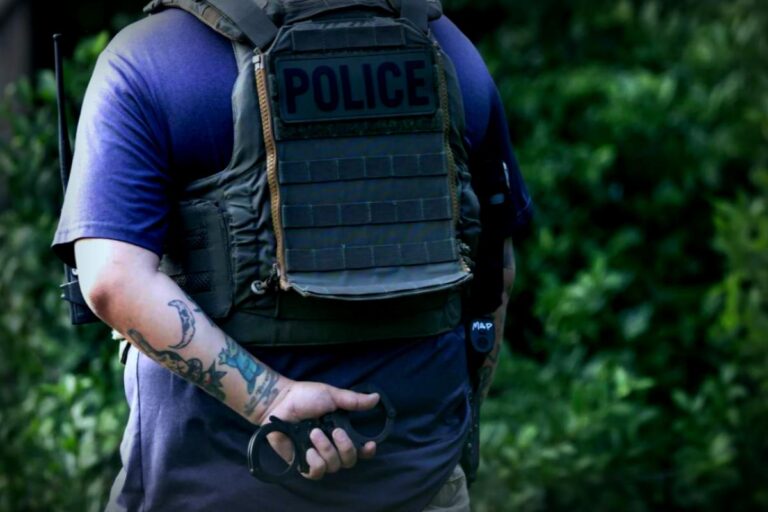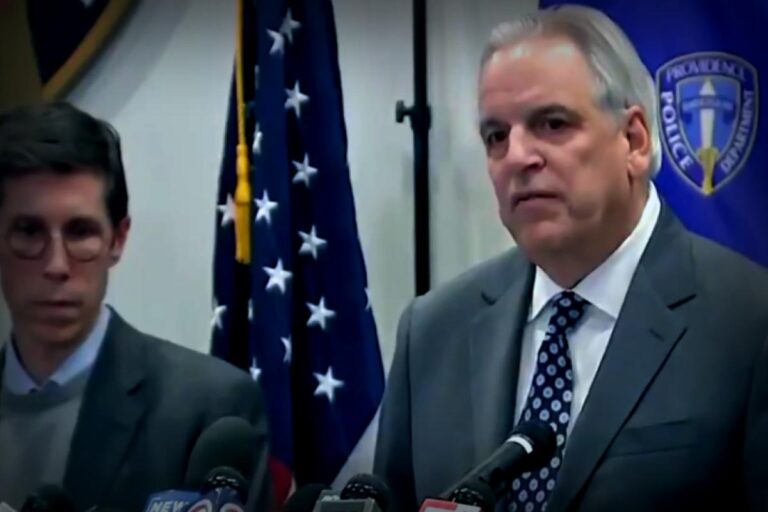
A major victory came for activists recently when a judge ruled to dismiss the domestic terrorism charges against Jamie Marsicano. This charge stemmed from incidents connected to vandalism against construction equipment at the site fondly referred to as ‘Cop City’—the future police training facility located near Atlanta, Georgia.
On Thursday, DeKalb Superior Court’s Judge Gregory Adams declared that Marsicano’s rights were violated due to the prolonged delays in legal proceedings and the state’s failure to file an indictment two and a half years after their arrest at a nearby music festival.
Xavier de Janon, Marsicano’s lawyer, expressed that this ruling confirms public suspicions about intentional state delays, highlighting the maxim that the legal process can often feel like a form of punishment. “It’s the idea that the process is the punishment,” he noted.
Protests against the construction of the $109 million training center have come from diverse local and national groups, sparking debates about police militarization and the environmental impact of deforesting areas amidst the ongoing climate crisis. Supporters, including Atlanta officials, argue that the center is essential for top-tier police training and attracting new recruits.
Over the past three years, the state has aimed domestic terrorism charges against opponents of the training facility, alongside similar charges in neighboring Fulton County, leveraging the law in a way normally reserved for tackling organized crime.
Besides the charges in DeKalb, Marsicano is set to face trial in the Rico case, which has become a record-setting indictment involving over 60 demonstrators connected with social justice movements.
In the time following their arrest, Marsicano completed law school in North Carolina and passed the bar exam. However, ongoing unresolved charges have led the state’s bar examiners to withhold a license from them. Adams acknowledged the severe personal and professional ramifications Meyers faced, labeling them as “forms of actual prejudice.”
Marsicano expressed concern about the lasting stigma of being labeled a domestic terrorist, noting its implications on housing and employment applications.
During the hearing, Judge Adams stated that the deputy attorney general of Georgia, John Fowler, appeared to be attempting to use the DeKalb charges for strategic advantage over Marsicano. De Janon remarked how the state continued to seek evidence against Marsicano despite the ongoing charges stemming all from the same incidents.
For the first time, during last week’s hearing, it was revealed that the delays in proceedings were also due to the huge volume of evidence totaling 14 terabytes—equivalent to over 3 million photos. De Janon communicated concern regarding the unexamined evidence yet to be reviewed.
This ruling marks the second dismissal during a three-year period as the state continues challenging multiple opponents to the police training center. Last September, Fowler had previously dropped money-laundering charges against members of the Atlanta Solidarity Fund, indicating a shifting dynamic in the state’s aggressive prosecutions.
Furthermore, several hearings surrounding Cop City have seen judges chastise the state for procedural missteps like failing to meet deadlines and mishandling, or exposing privileged attorney-client information. De Janon views the recent charge dismissals as a potential turning point, indicating that the state’s zealous prosecutions are facing significant pressure.





















